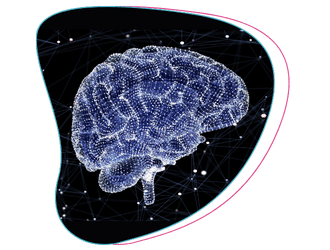Amyotrophic Lateral Sclerosis (ALS) is a rapidly progressive neurodegenerative disease that primarily targets the motor neurons in the brain and spinal cord. As these nerve cells die, people begin to have muscle weakness and difficulty with involuntary muscle functions such as speaking, breathing and swallowing. Life expectancy is estimated 3–5 years from symptom onset, however, there is substantial individual variation. Although the existing drugs riluzole and edaravone provide only marginal benefits, a major unmet need exists for new therapies capable of more profoundly affecting the disease [1][2].

At Stemwell Health, we understand the complexity and impact of ALS, and we are committed to helping patients through a combination of regenerative medicine, genetic insights, and integrative care strategies.
The Role of Regenerative Medicine in ALS
Although it has not been scientifically proven to serve as a cure for ALS, promising early research has revealed that solutions, such as mesenchymal stem cells (MSCs), platelet-rich plasma (PRP) and exosomes, may be able to treat ALS at the multi-level approach necessary to manage the complex Pathologies of the disease by:
- Reducing neuroinflammation, which contributes to neuron damage [3,4]
- Supporting motor neurons and glial cells with essential growth factors [5]
- Modulating the immune system and lowering oxidative stress [6]
- Promoting tissue repair and protecting nerves through cell signaling [7]
Several early-stage clinical trials using either the patient’s own or donor-derived MSCs have shown positive safety profiles and, in some cases, a slower rate of decline in function [8].

Genetic Testing: A Gateway to Precision Medicine
Approximately 10% of ALS cases are inherited (familial ALS), while the remaining 90% are sporadic. Still, genetic factors often play a role in both [9]. Mutations in genes like SOD1, C9orf72, FUS, and TARDBP are frequently involved.
Through our partnership with DNA GTx, we provide detailed ALS-focused genetic testing to:
- Detect key genetic mutations
- Offer personalized risk assessment and family counseling
- Guide eligibility for future gene-based therapies and trials
- Support data-driven decisions in regenerative treatments
This genetic information not only sharpens diagnostic accuracy but also opens the door to personalized treatments tailored to the patient’s unique biology.
A Multidisciplinary, Evidence-Informed Approach
At Stemwell Health, our ALS brings together:
- Biologic therapies including MSCs, PRP, and exosomes
- Advanced genetic testing with our partner DNA GTx
- Supportive therapies such as nutritional support, physical therapy, and neurocognitive care
- Ongoing monitoring using clinical assessments and biomarkers
While regenerative treatments remain under scientific investigation, our approach is based on current research and a commitment to ethical, safe clinical practice under regulatory oversight.
Commitment to Responsible Innovation
We aim to advance ALS care by:
- Applying new therapies backed by scientific evidence
- Using genomics to personalize treatment
- Creating compassionate, patient-first care programs
- Following global safety and quality standards
If you or someone you care about is living with ALS, we invite you to explore how our integrated treatment options might help improve quality of life and outcomes.
For more information, contact us or visit [Stemwell Health].
References
[1] Kiernan MC et al. (2011). Amyotrophic lateral sclerosis. Lancet, 377(9769), 942-955.
[2] Petrov D et al. (2017). ALS clinical trials review: 20 years of failure. Transl Neurodegener, 6, 1.
[3] Uccelli A et al. (2011). Mesenchymal stem cells in health and disease. Nat Rev Immunol, 11(11), 726–736.
[4] Kim HY et al. (2014). Exosomes derived from human mesenchymal stem cells reduce neuroinflammation in a mouse model of ALS. Stem Cells, 32(11), 3055–3067.
[5] Marconi S et al. (2013). Human mesenchymal stromal cells stimulate neurite outgrowth of spinal motor neurons. Biochem Biophys Res Commun, 440(4), 696–701.
[6] Bonafede R, Mariotti R. (2017). ALS and oxidative stress: The role of NADPH oxidase in motor neuron degeneration. J Clin Med, 6(12), 129.
[7] Phinney DG, Pittenger MF. (2017). Concise review: MSC-derived exosomes for cell-free therapy. Stem Cells, 35(4), 851–858.
[8] Petrou P et al. (2016). Safety and clinical effects of mesenchymal stem cells secreting neurotrophic factors in ALS: Phase 1/2 trial. JAMA Neurol, 73(3), 337–344.
[9] Taylor JP et al. (2016). Decoding ALS: From genes to mechanism. Nature, 539(7628), 197–206.
Ready to learn more about stem cell therapy?

At Stemwell, our team of doctors are highly skilled in successfully supporting thousands of people with a range of stem cell treatments. If you would like to learn more about stem cell therapy you can contact us with any questions, or apply today to check your eligibility.



